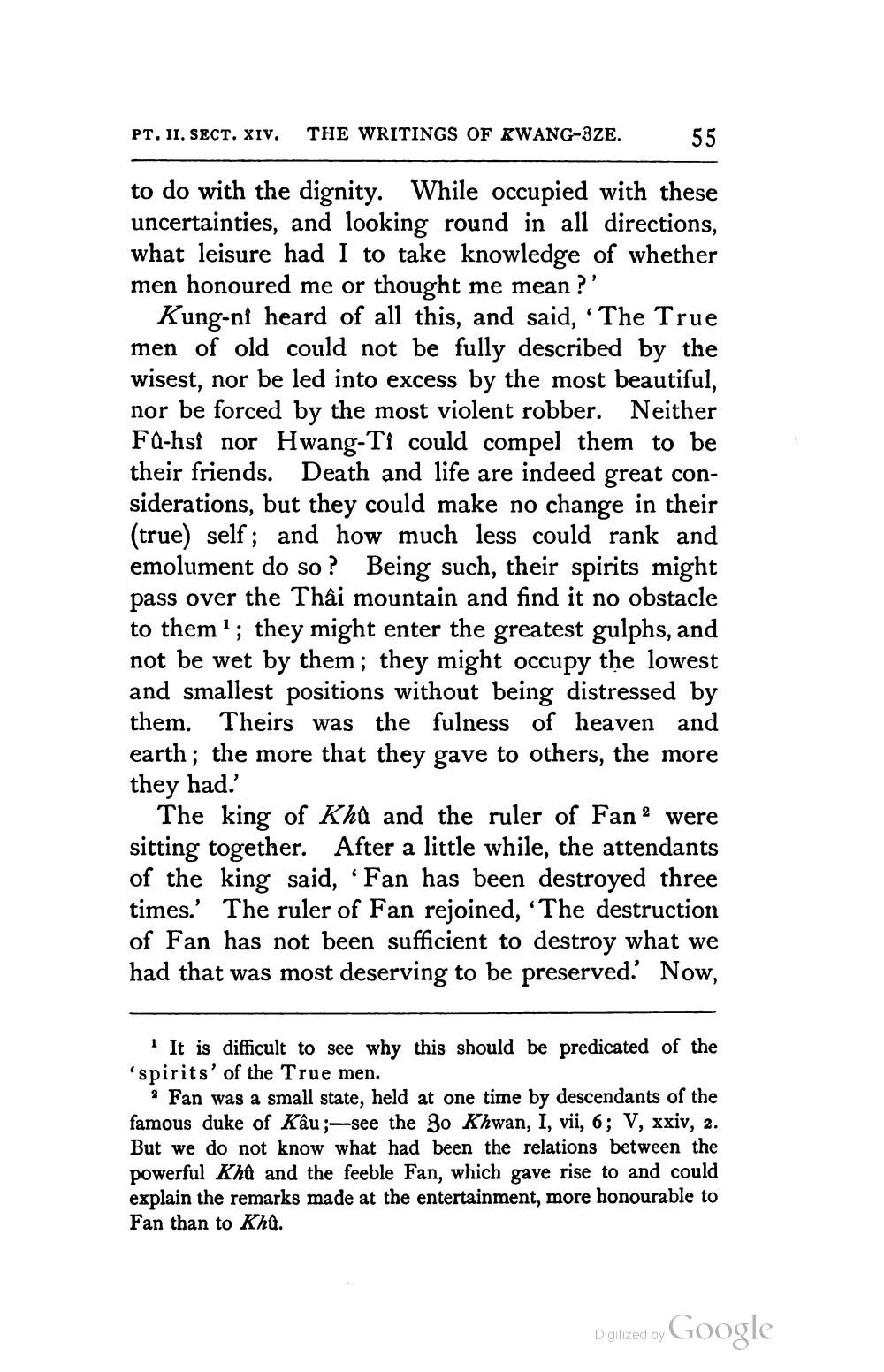________________
PT. II. SECT. xiv. THE WRITINGS OF KWANG-BZE.
55
to do with the dignity. While occupied with these uncertainties, and looking round in all directions, what leisure had I to take knowledge of whether men honoured me or thought me mean?'
Kung-ni heard of all this, and said, 'The True men of old could not be fully described by the wisest, nor be led into excess by the most beautiful, nor be forced by the most violent robber. Neither Fa-hsi nor Hwang-Ti could compel them to be their friends. Death and life are indeed great considerations, but they could make no change in their (true) self; and how much less could rank and emolument do so ? Being such, their spirits might pass over the Thậi mountain and find it no obstacle to them?; they might enter the greatest gulphs, and not be wet by them; they might occupy the lowest and smallest positions without being distressed by them. Theirs was the fulness of heaven and earth; the more that they gave to others, the more they had.
The king of Khu and the ruler of Fan 2 were sitting together. After a little while, the attendants of the king said, 'Fan has been destroyed three times.' The ruler of Fan rejoined, “The destruction of Fan has not been sufficient to destroy what we had that was most deserving to be preserved. Now,
It is difficult to see why this should be predicated of the 'spirits' of the True men.
? Fan was a small state, held at one time by descendants of the famous duke of Kâu;—see the 30 Khwan, I, vii, 6; V, xxiv, 2. But we do not know what had been the relations between the powerful Khu and the feeble Fan, which gave rise to and could explain the remarks made at the entertainment, more honourable to Fan than to Khů.
Digitized by Google




